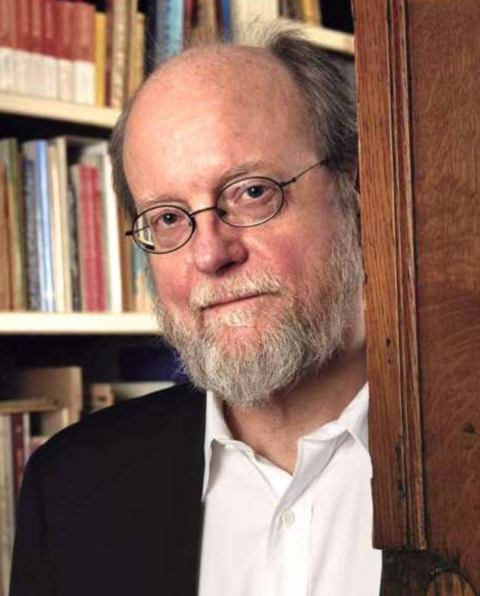Columbia College | Columbia University in the City of New York
Charles P. Wuorinen ’61, GSAS’63, Pulitzer-Winning and Prolific Composer

NINA ROBERTS
Born on June 9, 1938, the son of John H. Wuorinen Sr. GSAS 1931, the former chair of Columbia’s history department, Wuorinen was a prodigy who started composing at 5. He also was a polymath with interests in fractal geometry, astrophysics, Egyptology and Chinese calligraphy. He earned both a B.A. and M.A. in music, the latter from GSAS.
Wuorinen’s music showed refinement, power, technical excellence and wide emotional range, and it found a home in operas, ballets, symphonies, chamber and vocal works of all combinations and instruments.
His last completed work was his Second Percussion Symphony, which premiered in Miami in September 2019.
In recent years conductor James Levine became an advocate for the sometimes-controversial composer, and commissioned five orchestral works; Michael Tilson Thomas, a conductor with whom Wuorinen worked for much of his career, commissioned two; and Christoph von Dohnányi, of the Cleveland Orchestra, one. Oliver Knussen, a composer and great interpreter of Wuorinen’s works, recorded A Reliquary for Igor Stravinsky, which incorporated a few of Stravinsky’s unpublished musical fragments (a little more than a minute of music) into a new work many years after the Russian composer’s death.
Wuorinen also wrote six works for the New York City Ballet, including three scores inspired by scenes from Dante, and Five: Concerto for Amplified Cello and Orchestra. His works for the stage include operas based on Annie Proulx’s novel Brokeback Mountain and Salman Rushdie’s Haroun and the Sea of Stories.
Wuorinen had a strong interest in classical music, seen in such works as Delight of the Muses, written for the Mozart Bicentennial; Time Regained, which uses materials from Machaut, Dufay, Gibbons and Matteo da Perugia; and The Magic Art: An Instrumental Masque drawn from the works of Henry Purcell.
He received numerous awards, fellowships and honors, including the Pulitzer Prize in 1970 (for Time’s Encomium), and a MacArthur Fellowship, and was a member of the American Academy of Arts and Letters. Wuorinen is the author of Simple Composition, used by students throughout the world. He lectured at universities throughout the United States and abroad, and served on the faculties of Columbia, Princeton, Yale, the University of Iowa, UC San Diego, Manhattan School of Music, New England Conservatory, SUNY Buffalo and Rutgers.
Wuorinen is survived by his husband of 32 years, Howard Stokar.
Read more about Wuorinen in The New York Times and on his website.
Issue Contents
Published three times a year by Columbia College for alumni, students, faculty, parents and friends.
Columbia Alumni Center
622 W. 113th St., MC 4530, 4th Fl.
New York, NY 10025
212-851-7852
cct@columbia.edu
Columbia Alumni Center
622 W. 113th St., MC 4530, 4th Fl.
New York, NY 10025
212-851-7488
ccalumni@columbia.edu

